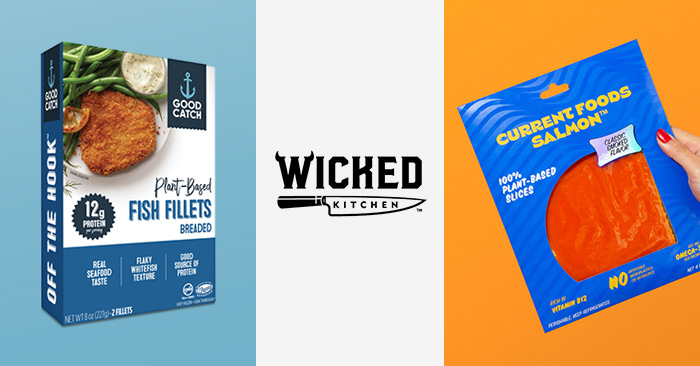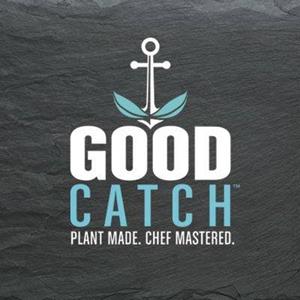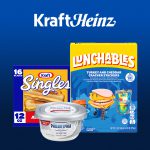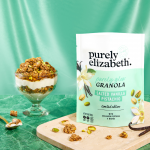Fresh Catch: Wicked Kitchen Acquires Plant-Seafood Maker Current Foods in Cashless Deal

Wicked Kitchen has acquired plant-based “raw” seafood provider Current Foods, a transaction that deepens the company’s food service offerings and grows its portfolio of plant-based products following its 2022 acquisition of Good Catch. Exact terms of the non-cash deal were not disclosed.
Following the deal, Current’s investors, which include Ray Lane, the managing partner at GreatPoint Ventures;Union Grove Venture Partners; Astanor Ventures; Electric Feel Ventures; and NBA player Chris Paul are now shareholders in Wicked. In addition, the investor group also contributed more capital to Wicked’s $25 million bridge round, which closed earlier this Spring.
The two companies share backers: David Barber, a partner at Astanor Ventures, previously was an investor in Good Catch through his prior fund, Almanac Investments.
“I think [the investors] saw what we did with Good Catch and he was looking around the table at Current and going, ‘you know if we sit in this space by ourselves, we’re gonna have a tough time,’” Speranza said. “The top line wasn’t growing as quickly as expected and that was getting their investing group a little antsy about the future.”
Founded in 2019, Current, a producer of “raw” tuna and salmon products, raised $18 million in a seed round last summer. However, its co-founder and then-CEO Jacek Prus left the company earlier this year, following disagreements with the board over strategy.
Despite the leadership changes, the company has achieved solid, albeit somewhat small, distribution in food service, Speranza said, holding contracts with providers including Dot Foods and Sysco. It’s a channel in which Wicked hopes to deepen its presence, he added, noting that Good Catch’s top selling product is currently a bulk tub of its flaked, plant-based tuna.
Meanwhile both Wicked and Good Catch have a bigger footprint in brick and mortar retail — with the former crafting products for retailers including Kroger, Sprouts and, overseas, Tesco. Speranza hopes to parlay these relationships into retail launches for Current. It’s a strategy the company has seen positive results with Good Catch, with that brand recently entering Wicked retail partners Kroger and Safeway.
Plant-based sushi, which could be made with Current’s salmon and tuna, is an area Wicked sees as particularly attractive, with Speranza noting that most American supermarkets now sell prepacked sushi or have a made-to-order sushi counter. Current offers eight different cuts of its salmon and tuna blocks for use in a range of dishes, from sushi to sandwiches to poke bowls.
Speranza said Wicked can also potentially help Current streamline its copacking operations in Southern California and Spain. Wicked produces Good Catch at Trellis, an Ohio-based co-packer owned by Gathered Foods. The two share a common investor: Unovis Asset Management, also the lead investor in Good Catch.
On a macro level, Speranza says the industry should expect to see more consolidation within the plant-based space, which has become oversaturated and where “the expectations are way higher than the consumer adoption.” Developing plant-based meat and seafood is also fairly expensive, requiring heavy investment into R&D and food technology, Speraza added, and a lot of alt-meat businesses can’t reduce their cash burn fast enough to ride out other players.
Synergies in technology means less investment into R&D overall, he told NOSH, noting that companies with broad portfolios will be able to offer retailers a one-stop-shop for all of their needs.
“It’s hard for these companies individually to work out, especially with the current investment environment that’s going on. It’s really cutthroat at this point. [Investors] want margins and that’s not what these companies have at the beginning,” Speranza said. “[Wicked lives] in multiple categories — as a pizza and ice cream brand, as well as a seafood brand. I think it will just help ease the pain. We’ll grow overall, but we don’t necessarily have to lean on one category to be all our growth.”
Wicked, however, is also facing the same market forces and competition. According to an equity funding campaign hosted on StartEngine earlier this year, for the most recent fiscal year the company had $13.1 million in sales, but ended with a net revenue loss of roughly $20.9 million and is carrying $22.4 million in a mix of long-term and short-term debt.
Within plant-based sushi, for example, other players include newly launched Konscious Foods, which debuted its line of frozen sushi rolls, onigiri and poke bowl kits at the winter Fancy Foods show this year, as well as Boldly Seafood. The latter, a producer of alt-seafood items including tuna sashimi and crab stick, this week announced its West Coast expansion.
Speranza said he expects Wicked’s sales to grow as the company is able to fully integrate, and benefit from, the addition of the Good Catch and Current brands. To that effect Wicked is rethinking its overarching brand strategy, with Speranza hinting that the Wicked brand will soon be featured prominently on Good Catch’s and Current Foods’ packaging and marketing materials. Social media channels will also be streamlined with the aim of reaching a larger pool of shoppers with a unified message.
There are also plans to reduce expenses. On the Wicked front, the company is undergoing a SKU rationalization overseas, dropping from 100 products in Tesco to roughly 45. Moving forward, across all markets, the Wicked brand will focus on four core areas: frozen products, which includes meals, pizzas, appetizers and ice cream; shelf stable meals, such as its mac and cheese cups, noodle bowls and other “meal pots;” Bakery, including cupcakes and cookies; and fresh items, such as sandwiches and heat-and-eat meals. The latter two categories are currently only available abroad.
“What we don’t want to do is try to build a bunch of separate brands,” Speranza said. “In the longer term, you’re going to actually see less SKUs than we have today. But they’re going to be pointed at these categories that we really think could be million dollar SKUs.”

















